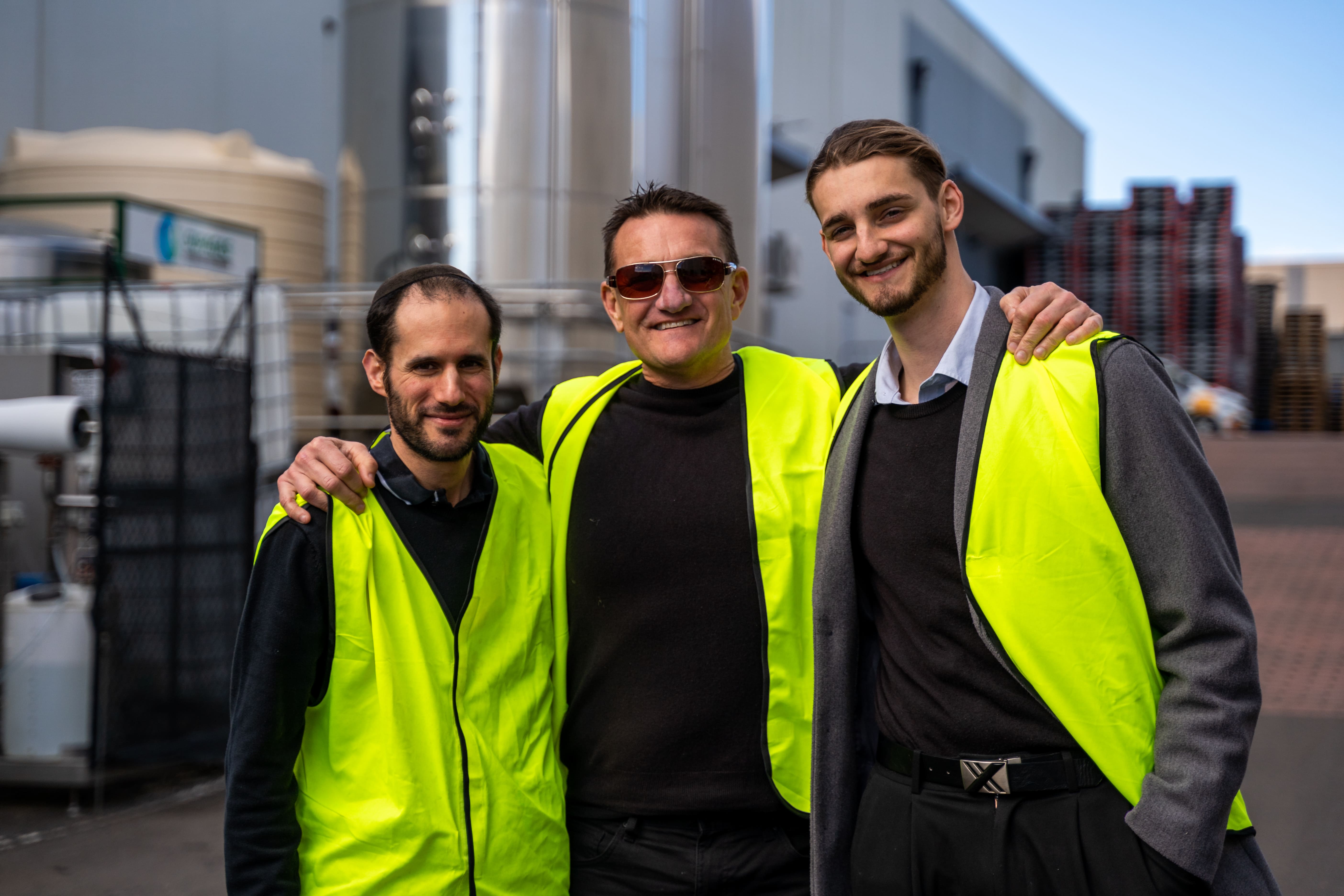How refreshing! The thirst for non-alcoholic health drinks
We speak to Benjamin Lovric from Wild One Beverages about why non-alcoholic health drinks are becoming so popular with consumers around the country - and why Wild One is so committed to the health of their customers, and the health of the planet.

Despite being a nation that’s fond of beer and wine, there’s an increasing market for non-alcoholic health drinks as a sometimes-or-always alternative for many Australians. The main reasons? A focus on health and wellness, an increase in tasty (and healthy) non alcoholic options, and a growing interest in sustainable products.
“As we all know, healthy drink alternatives (and healthier options in the food and beverage industry as a whole) have grown substantially over the last 5-10 years,” says Benjamin Lovric from Wild One Beverages, a supplier known for healthy, organic alternative drinks.
“The Australian consumer has generally become more health conscious, and whether it’s sometimes, or always, they generally want more options than just a soda water or a coke if they’re not drinking alcohol.”
Ben also observes that this demand for more options means venues need to provide drinks that give the consumer an experience. “Consumers not only want low-sugar /sugar-free, preservative free, and drinks that promote gut-health, but they also want TASTE.”
It’s a high benchmark, but one that Wild One Beverages strives for.
“Many big name brands have alcohol-free sugar-free drinks, but they’re often choc-full of artificial sweeteners, flavours, colours and preservatives,” says Ben. Many Australians who identify as health-conscious don’t want these drinks - but they also want to have fun and enjoy what they’re drinking.”

Wild One: ahead of the wellness curve
Honing in on this type of consumer led to the creation of Wild One Beverages, a health-drink company created in 2008 - way ahead of the current wellness curve.
“Andrew, one of the co-founders of Wild One, was working as a beverage distributor at the time. He was speaking directly with managers of cafes, restaurants, health food stores, and they were telling him of a growing demand for healthy alternatives to the big-name, sugary soft drinks and artificial, preservative-filled juices that were available at the time.”
Andrew resonated with this way of thinking. Having three young children, he’d always been concerned about them drinking sugar and preservative filled beverages.
“Andrew observed that the average age of the health conscious consumer was starting to rise, and he knew he could be a market leader and spark a shift in the beverage industry toward healthy beverages.”
Around this time, Andrew met Michael Gordon, a world-class food and beverage technologist, and the two instantly hit it off. Serendipitously, they also had all the requisite skills to create Wild One.

Sustainability matters to this type of consumer
With health-consciousness growing every year, Wild One has seen their products evolve and flourish over the years. But what truly sets them apart is their commitment to sustainability. “I’ve seen that sustainability is becoming a key concern for consumers, and the demand for locally sourced and eco-friendly products is rising,” says Ben.
“Many non-alcoholic and low-alcohol beverages are produced using local ingredients, supporting local communities and reducing carbon footprints, which appeals to environmentally-conscious Australians. The type of consumer that will forgo alcohol sometimes is often the type of consumer who thinks about tomorrow more broadly as well.”
It’s one reason that companies like Wild One bake sustainable practices into their business. The whole business is powered by renewable energy, they use minimal plastic, and are currently projected to be carbon neutral by 2023.
“Wild One has become well known for being a renewable powered company and it’s a big reason why our consumers are so loyal and venues who stock our brand love dealing with us.”
What’s next for the non-alcoholic drinks industry?
“The market is constantly evolving,” says Ben.
“Five years ago, kombucha was the beverage of choice and all the rage. Right now, non-alcoholic spirits and non-alcoholic ready-to-drink spirits are all the rage.”
Ben predicts that within the next 5-10 years, there’ll be even more of a demand for drinks that pack nutrients - without any of the preservatives.
“We’ve actually patented our own technology. No one else is doing this, but it’s called CFT (Cold-Fusion Technology). It allows our products to keep all the nutrients of the fruits that are normally killed in standard UHT (ultra-heat treatment) practices. It means that products can be stored at room-temp with long shelf life….that’s hard to achieve without UHT or preservatives.”
Ben believes that this kind of tech will become important as consumers ask for more from the products that they consume.
“There’ll be even more of a demand for cleaner, healthier products that help people with their performance.”’

Five non-alcoholic trends to look out for
- Kombucha as mixer: It’s been around for a while, but kombucha is becoming more and more popular as a mixer and and as an ingredient in cocktails.
- Non-alcoholic spirits: There is a growing demand for non-alcoholic spirits like Seedlip, Lyre's, and Brunswick Aces as more Australians choose to moderate their alcohol intake or abstain entirely.
- Craft sodas: Artisanal, small-batch sodas with unique flavors and natural ingredients are becoming popular, offering an alternative to traditional soft drinks.
- Fancy iced tea: Australians are increasingly seeking out iced tea varieties, such as matcha, chai, and fruit-infused blends. Many cafes and specialty tea shops offer a wide range of flavors.
- Functional, health-focused beverages: Australians are becoming more health-conscious, leading to a rise in demand for drinks with functional benefits that help them perform. Drinks containing extracts for calm and focus will become increasingly popular.
Categories
Trends
Food lover, restaurant-goer, hospitality appreciator, and writer of content at Ordermentum.


.png?width=590&height=236&name=Call%20to%20action%20-%20CTAs%20(2).png)





